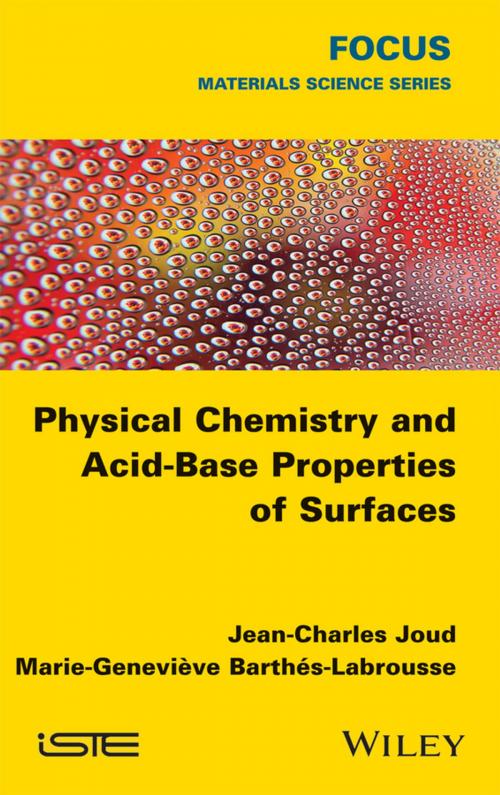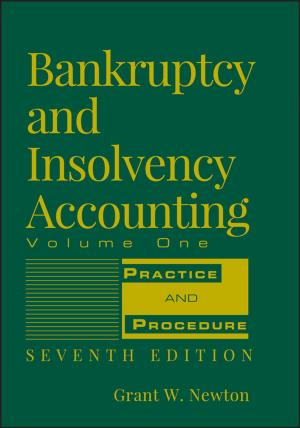Physical Chemistry and Acid-Base Properties of Surfaces
Nonfiction, Science & Nature, Technology, Material Science| Author: | Jean-Charles Joud, Marie-Geneviève Barthés-Labrousse | ISBN: | 9781119145417 |
| Publisher: | Wiley | Publication: | November 4, 2015 |
| Imprint: | Wiley-ISTE | Language: | English |
| Author: | Jean-Charles Joud, Marie-Geneviève Barthés-Labrousse |
| ISBN: | 9781119145417 |
| Publisher: | Wiley |
| Publication: | November 4, 2015 |
| Imprint: | Wiley-ISTE |
| Language: | English |
The first part of this book looks at the consequence of chemical and topological defects existing on real surfaces, which explain the wettability of super hydrophilc and super hydrophobic surfaces. There follows an in-depth analysis of the acido-basicity of surfaces with, as an illustration, different wettability experiments on real materials. The next chapter deals with various techniques enabling the measurement of acido basicity of the surfaces including IR and XPS technics.
The last part of the book presents an electrochemical point of view which explains the surface charges of the oxide at contact with water or other electrolyte solutions in the frame of Bronsted acido-basicity concept. Various consequences are deduced from such analyses illustrated by original measurement of the point of zero charge or by understanding the basic principles of the electrowetting experiments.
The first part of this book looks at the consequence of chemical and topological defects existing on real surfaces, which explain the wettability of super hydrophilc and super hydrophobic surfaces. There follows an in-depth analysis of the acido-basicity of surfaces with, as an illustration, different wettability experiments on real materials. The next chapter deals with various techniques enabling the measurement of acido basicity of the surfaces including IR and XPS technics.
The last part of the book presents an electrochemical point of view which explains the surface charges of the oxide at contact with water or other electrolyte solutions in the frame of Bronsted acido-basicity concept. Various consequences are deduced from such analyses illustrated by original measurement of the point of zero charge or by understanding the basic principles of the electrowetting experiments.















